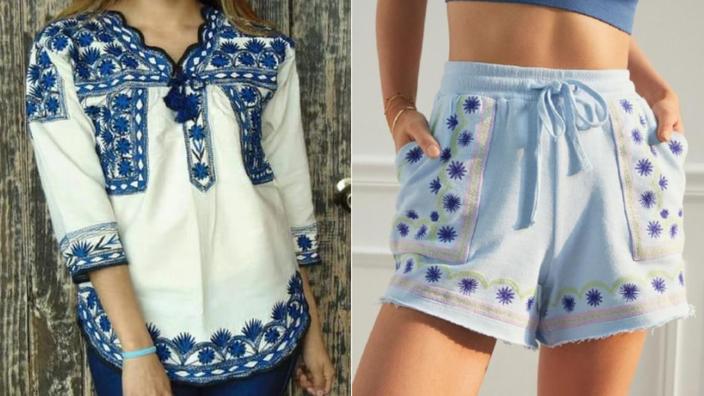This time, it is in the tops and shorts that the shoe pinches.
Mexico has asked clothing brands Zara, Anthropologie and Patowl for explanations after using cultural elements borrowed from indigenous Mesoamerican peoples in their collections, the Mexican Secretariat for Culture said on Friday.
The institution sent letters to the three brands calling on them to publicly clarify
"on what grounds collective ownership"
belonging to various indigenous peoples of the southern state of Oaxaca
"is privatized"
, and to indicate how they intend
" rewarding creative communities ”
.
Read also: Justin Bieber accused of cultural appropriation because of his Rastafarian hairstyle
"It is a principle of ethical consideration which, locally and globally"
, compels us to draw attention to and discuss
"the protection of the rights of indigenous peoples which have been historically invisible"
, say the letters dated May 13 and signed by the Mexican Secretary for Culture, Alejandra Frausto Guerrero.
"You cannot respect what you do not know"
, had already commented in April, in an interview with
WWD
, this political personality very committed on the front of the respect of the traditional and ancient Mexican heritage.
“You have to include the people you pay tribute to when you pay tribute
,” she also added at the time.
The person or the community to be honored must give their consent ”
.
On the left, a shirt decorated with traditional motifs from Zapotec culture.
Right, a Patowl brand blouse that the Mexican government suspects has been appropriated.
Juliana Martha Sernas / Secretaría de Cultura / Patowl
Mixtec, Mixe and Zapotec motifs
In the case of Zara, owned by the Spanish company Inditex, the ministry pinned the Midi dress, including the belt that incorporates elements of Mixtec culture, from the municipality of Oaxaca to San Juan. On the side of the American brand Anthropologie, the item of clothing in question is the Marka embroidered shorts, which features ornamentation originating from the culture and identity of the Mixed people of Santa María Tlahuitoltepec. Patowl, for his part, made various printed T-shirts from his Tops collection, making
“a faithful copy”
of the traditional clothes of the Zapotec people of the community of San Antonino Castillo Velasco, the ministry said. In these letters, Alejandra Frausto Guerrero invites brands not to undermine
"the identity and economy of the people"
and therefore advocates a
"fair trade"
that can treat creators, entrepreneurs and indigenous designers on an equal footing with these large industries.
In November, the Mexican minister challenged French fashion designer Isabel Marant, accusing her of commercially exploiting different traditional motifs of indigenous Mexican peoples in her latest collection at the time. In 2019, the ministry crushed Carolina Herrera, a Venezuelan designer based in the United States, for reproducing colorful embroidery typical of the Tenango community. The Spanish companies Rapsodia - also from Inditex - and Mango have also been singled out for appropriating designs from Mexico, which with 56 ethnic groups has significant artisan wealth, including in textiles and embroidery. When it comes to cultural appropriation, the white flag is not yet about to fly in the world of clothing.

